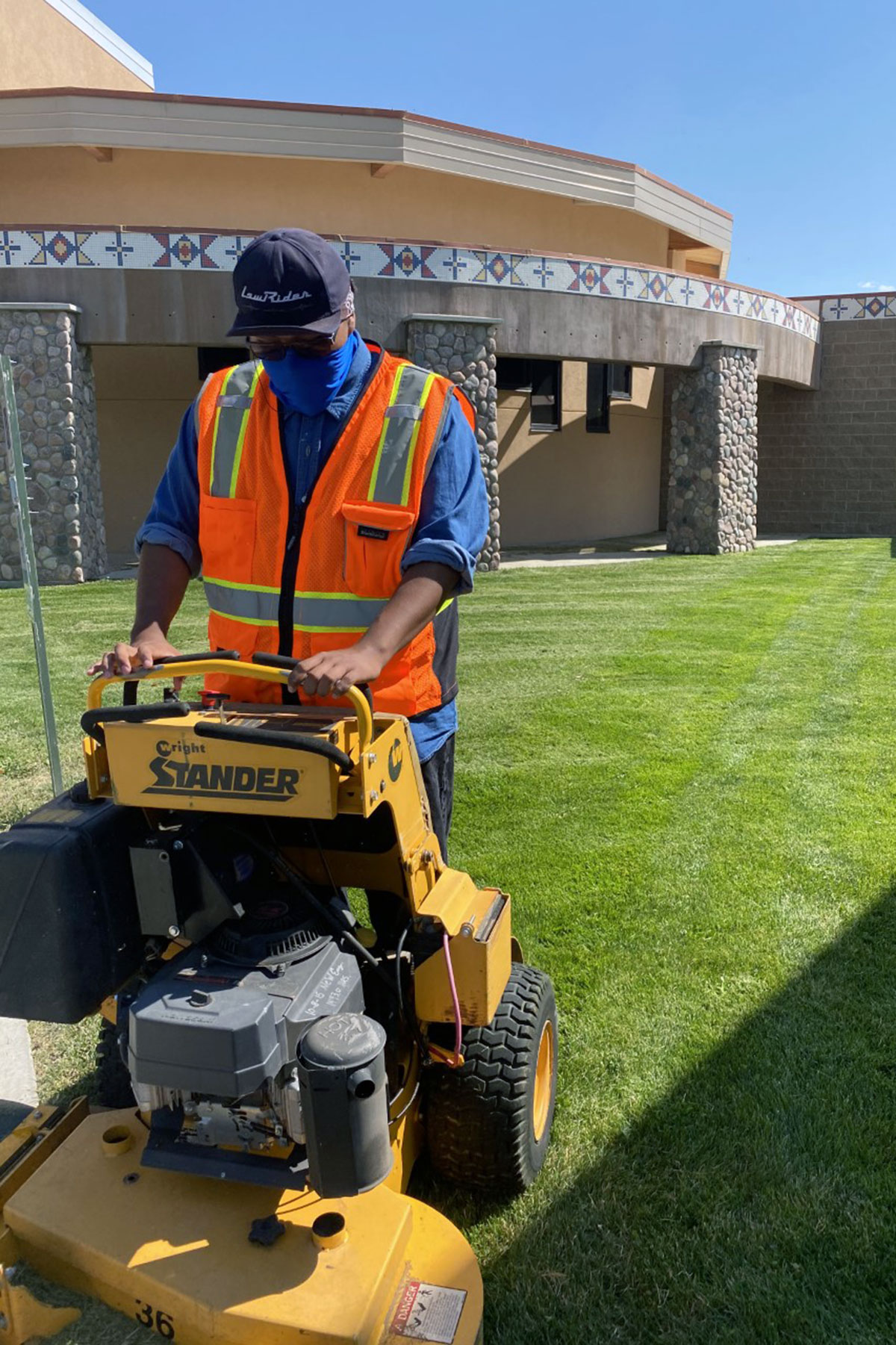The Southern Ute Indian Tribe’s Youth Employment Program (YEP) places dozens of tribal students into real world work environments each summer, giving them an opportunity to learn and grow in a professional capacity. Often times these students work in tandem, or collaborate with their peers from other departments. Most importantly they gain valuable experience working, while earning a paycheck over the summer.
The program has proved popular among students, who get a chance to work with Tribal Departments in a variety of settings, both in and out of the office. This summer has proved to be an exception to the longstanding program, which usually employs student workers throughout the summer break, while still giving them ample time to ready themselves for the academic semester each fall.
This year the Tribe’s Education Department had to get creative to see how they would be able to bring in student workers during the pandemic, while still adhering to the Tribe’s safety protocols.
“Last year we had 48 students, and our cap is 50,” explained Dustin Weaver, Youth Employment Program Apprentice with the Southern Ute Education Department. “We wanted to still give the kids the opportunity to gain job experience, and on the job knowledge. We didn’t want to not offer that with COVID-19, so we worked with the IMT and employers to come up with a plan on how to safely put them to work.”
The solution was a shorter work season and fewer students, a number of which worked outside. One student even worked remotely, collaborating with his department online each day. In total, the program employed five tribal members, working with various Tribal Departments under the Permanent Fund.
“What I did, once we got the OK from the IMT, I started getting with departments: our department, SUIMA, Legal, Grounds, and Tribal Court, Natural Resources and the Southern Ute Museum. Because we ended up starting around the first week of August, it was really short, working about two weeks total,” Weaver explained.
“What we are trying to teach them is to write a resume, apply for a job, for the interview process, so by the time they do it, they know what to look forward to,” Weaver emphasized. “I was really happy that we got a chance to give the kids a chance to work this summer. And they earned a paycheck at the same time – It’s good life experience.”
Through YEP, students are paid by the Southern Ute Education Dept. based on the hours they work. But the primary goal is to prepare them for the workforce through real world experience. Because of the short season, many students opted to apply for next year’s program instead. Some of the potential student employees had already signed up for science and math camps.
The program had a few hurdles to overcome this summer, which also attributed to the late start.
Kaye Washington interned with Education. “There as some miscommunication between her and HR, emails, phone calls, so she ended up starting later then she would have,” Weaver said. “This year they had to set up drug testing appointments, COVID-19 testing on their own prior to working.”
Dimitre Burch worked with Grounds Maintenance. “He did really well, he was the first one to apply, Weaver said. “His employment went pretty smooth.”
Jace Carmenoros and his sister, Jazmin Carmenoros worked together at SUIMA. “They did the garden, helped teachers with painting tires for an obstacle course, and some office work – they did pretty much whatever needed done.”
Badger Yellowbird served with the Tribe’s Legal Department “His was fully virtual, and never went into the office, all emails, phone calls and TEAM meetings,” Weaver explained. “I think it was just really different for him. He said he had fun, and that his uncle who takes care of him is a lawyer. The Legal Department said he was very helpful in what they gave him to do.”
Because the Southern Ute Indian Tribe is still observing a mandatory Stay at Home order, the Education Dept. will honor the summer workers by giving them each a small gift and a lunch, so that they know they are appreciated. Individually the students will receive a meal delivered to their home, in lieu of the traditional end of season get together.
“There was a lot of hard work on their side, and the Tribe’s side jut to make sure this happened — I want to thank everybody for their work, Weaver emphasized. “I hope the [students] gained some experience from what’s going on right now!”
The Youth Employment Program was originally run through Southern Ute Community Actions Programs (SUCAP), but eventually moved under the Southern Ute Education Department, where the program is now managed each summer.

